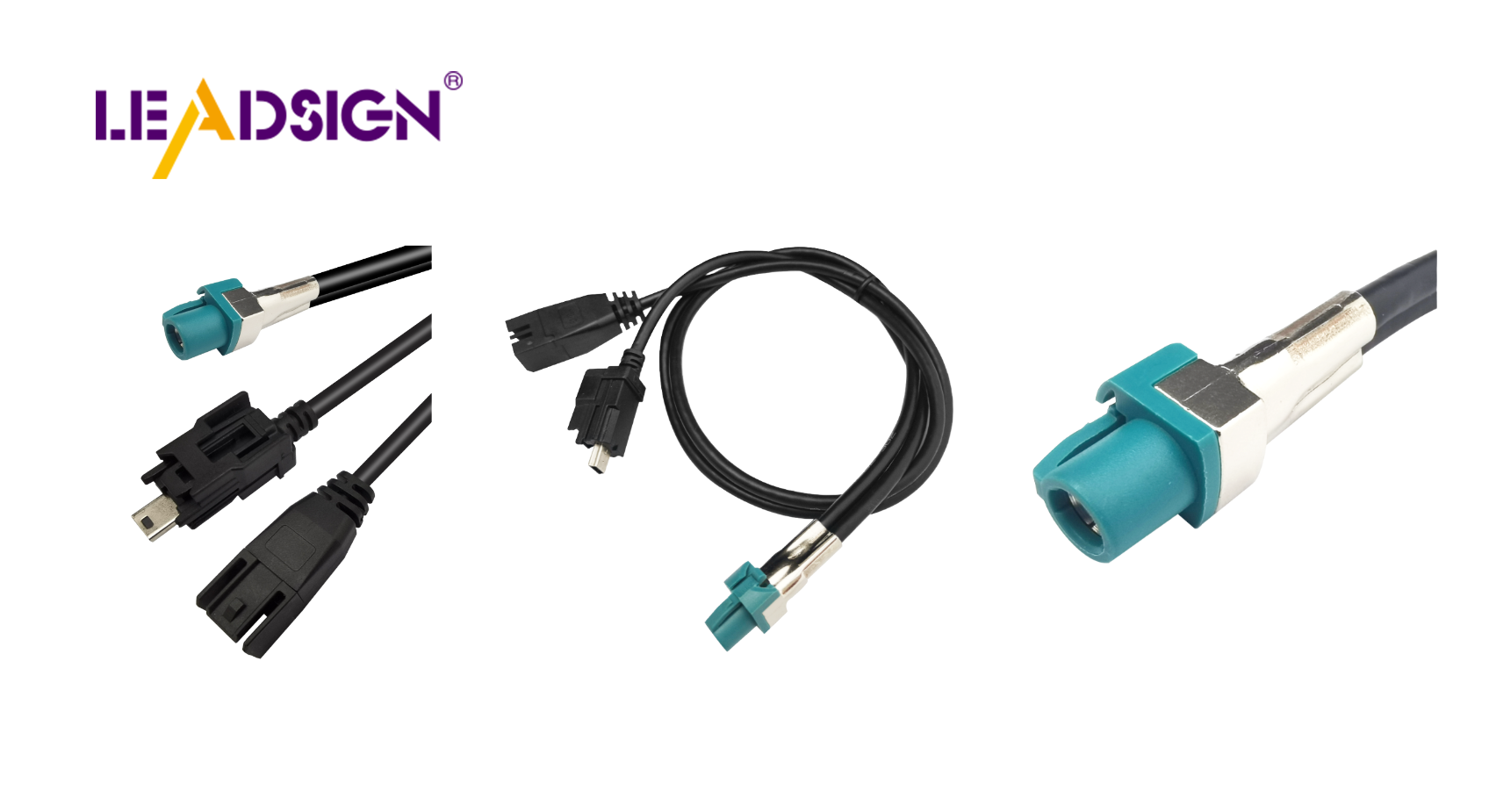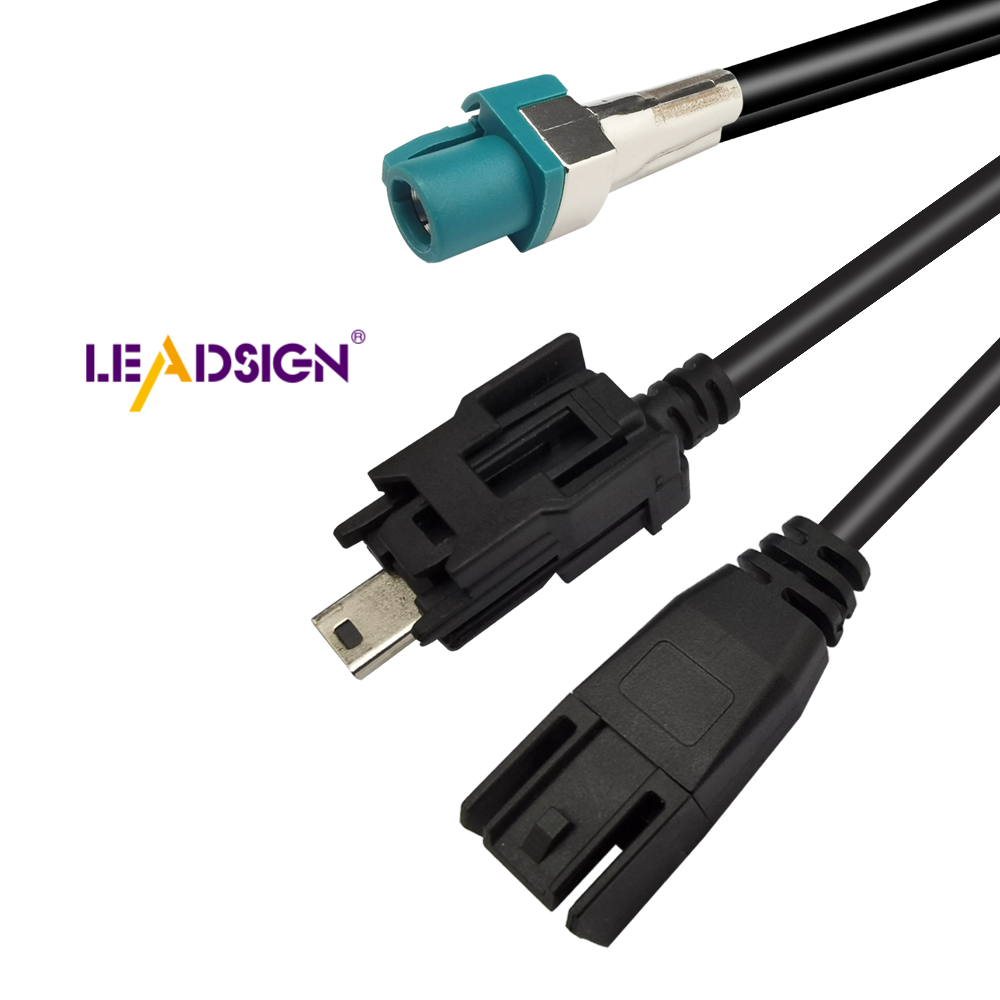Exploring Automotive Wiring Connector Types for Modern Vehicles

In today's cars, automotive electrical connectors types are very important. They help keep different electrical parts connected well. Without them, your car might not work right. The types of connectors affect how well your car's systems work. They make sure power and data move easily, which helps avoid problems. Knowing their importance helps you see how they keep your car safe and running well.
Overview of Automotive Electrical Connectors Types
Definition and Purpose
What are Wiring Connectors?
Wiring connectors are very important in your car's electrical system. They connect different parts so power and data can flow well. Without them, car parts would have trouble talking to each other. Think of them as the glue that keeps everything working.
Importance in Vehicle Systems
In new cars, wiring connectors are super important. They make sure each part gets the power and data it needs to work right. Using the right connectors makes your car more reliable and better performing. These connectors stop electrical problems that could cause big repairs or dangers. Knowing their role helps you see how they keep your car running smoothly.
General Types of Automotive Electrical Connectors general types of automotive electrical connectors
Male and Female Connectors
Male and female connectors are common types in cars. The male has a pin, while the female has a socket. When joined, they let electricity pass safely through them. This design keeps connections strong even with movement or shaking. You find these all over your car, like in the engine or dashboard.
Sealed and Unsealed Connectors
Sealed connectors protect against things like water, dust, and dirt. They work well in tough spots like near the engine or under the car. Sealed ones stop rusting and last longer. Unsealed ones are good inside where it's dry. Picking the right connector depends on what your car needs.
Specific Types of Wiring Connectors

Knowing different car connector types helps you choose well. Each type has its own job and benefits.
Blade Connectors
Characteristics and Uses
Blade connectors, or spade connectors, have a flat metal piece. It fits into a matching slot. They are used for quick connections. They fit tightly and are easy to use. Blade connectors are great when parts need frequent connecting.
Common Applications in Vehicles
In cars, blade connectors are found in fuse boxes and lights. They connect headlights, taillights, and other parts. Their design allows good power flow, making them perfect for reliable car connections.
Pin Connectors
Features and Benefits
Pin connectors have a pin and socket. They make strong links and handle different electric loads well. They stay connected even with shaking or movement. Pin connectors work with many wire sizes.
Typical Use Cases
Pin connectors are used in engine controls and sensors. They're important where exact data is needed. Pin connectors keep signals clear, so they're key in modern cars.
Butt Connectors
Design and Functionality
Butt connectors join two wires end-to-end. They look like cylinders where wires go in both ends. You crimp them to hold tight. This makes sure electricity flows well.
Installation and Maintenance
To install butt connectors, strip wire ends first. Put them into the connector then crimp it tight with a tool. Check often for rust or wear if exposed to wetness or heat. Butt connectors give strong, lasting connections for cars.
Things to Think About When Picking Connectors
When picking car connectors, think about a few things. This helps you pick the best ones for your car.
Environmental Factors
Heat and Water Resistance
Think about where connectors will be used. Some face heat and water. For example, those near the engine or under the car need to handle these. Pick connectors that resist heat and water well so they last longer.
Movement and Bump Tolerance
Cars move and shake a lot. Pick connectors that stay connected during this. Good ones won't lose connection with bumps or shakes. This is important for parts like the suspension or engine.
Electrical Needs
Power and Voltage Levels
Know your car's power needs. Each connector type has power limits. Match these with your car's needs to keep it safe. Right matches stop overheating and damage.
Fit with Car Systems
Make sure connectors fit your car's systems well. Different types work with different parts. Check specs before buying to make sure they fit right.
By thinking about these things, you can pick the best connectors for your car. This makes your car run better and keeps it safe while driving.
Picking the right connectors is key for your car's work and safety. Good connectors help power and data move well, stopping problems. As tech gets better, new cars have improved connectors. These new designs last longer and work better with car systems. By knowing and choosing the right connectors, you make your car work better and last longer. Keep up with new connector ideas to keep your car working safely and smoothly.
See Also
The Significance of Fakra Car Connectors in Contemporary Automobiles
Fundamentals of HSD Connectors in Automotive Sector
Discovering the Advantages of Fakra Car Connectors
Enhancing Car Data Transfer: Innovative Connectors and Cables
Transforming Car Connectivity: The Benefits of HFM Connectors

